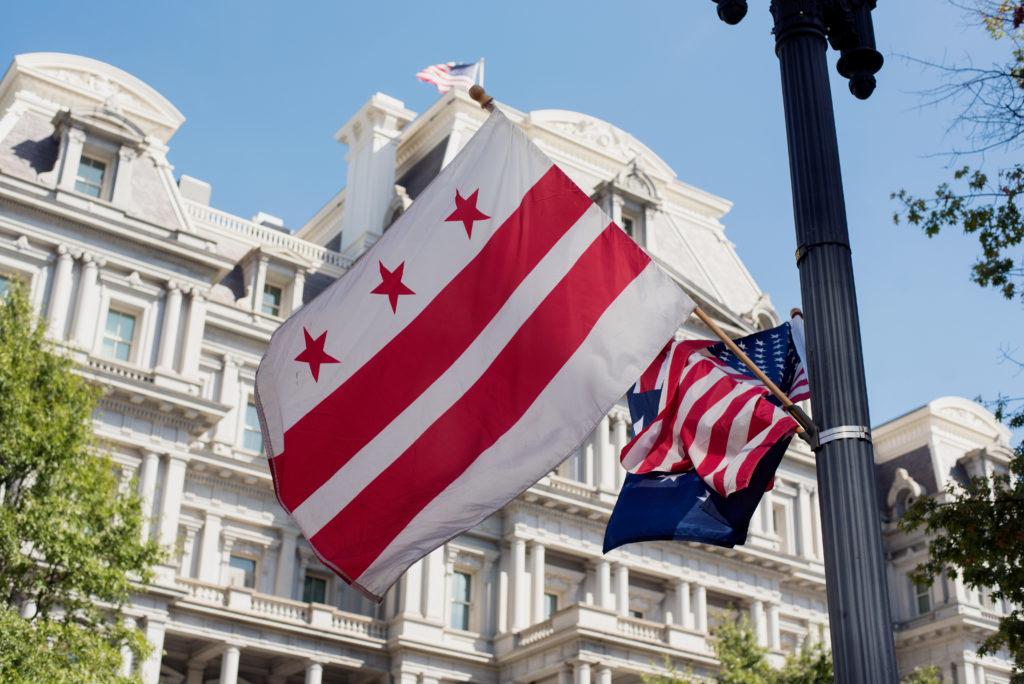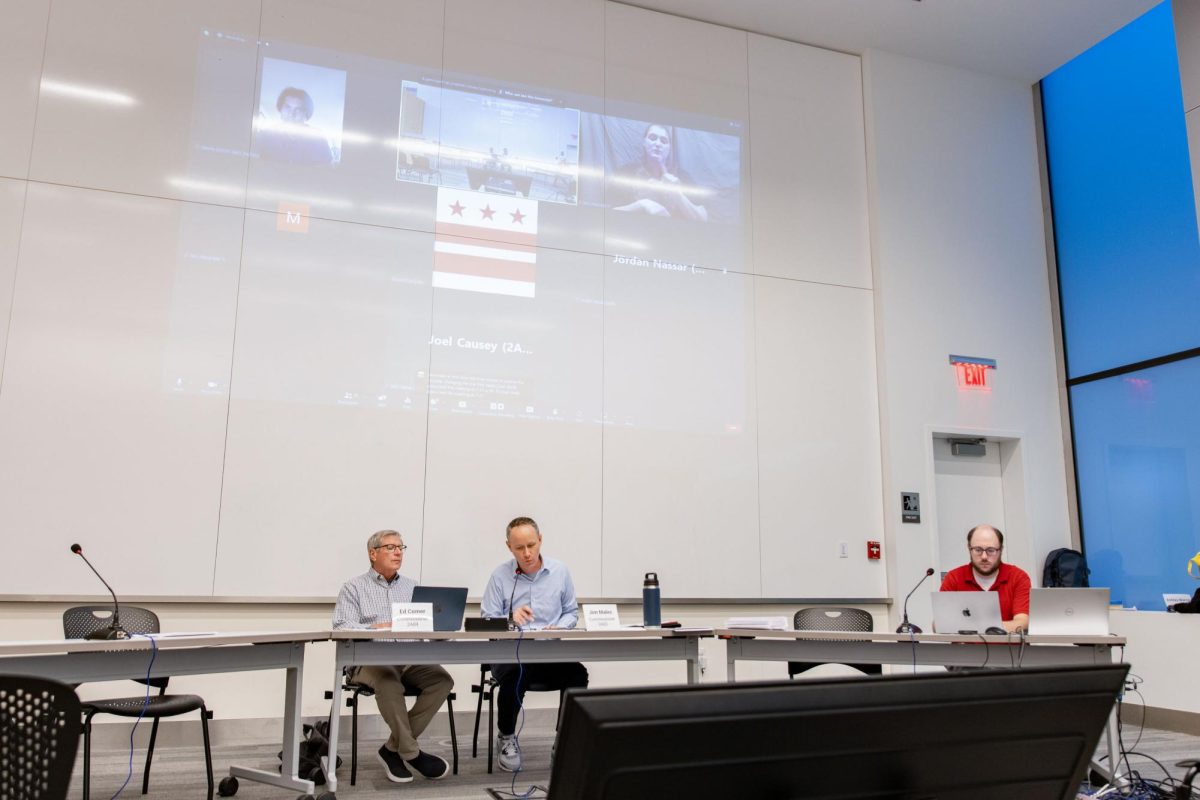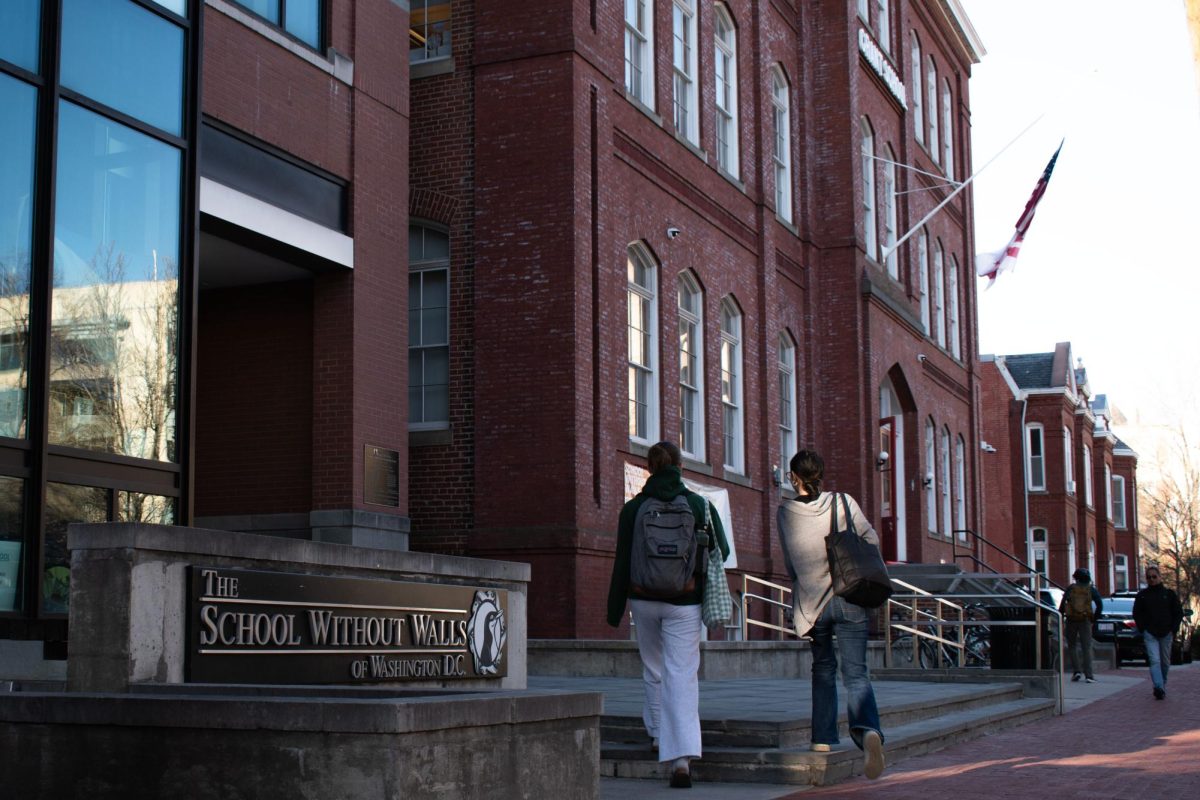A bill granting D.C. statehood faces slim odds as it awaits a potential Senate vote later this year, but GW students are continuing to advocate for the admission of the District into the Union.
The House of Representatives approved a bill, named H.R. 51, for the second time in a year last month with a 216 to 208 vote to make D.C. a state named “State of Washington, Douglass Commonwealth,” after abolitionist Frederick Douglass. Some students are advocating for statehood to city and federal officials through phone banking in an effort to advance the bill’s prospects as the University breaks for summer.
The bill has stalled in the Senate after passing the House due to bipartisan opposition to the bill, but some D.C. officials remain optimistic about the likelihood of its passing. Del. Eleanor Holmes Norton, D-D.C., the District’s non-voting representative in the House who introduced the bill in Congress, said she is optimistic about D.C. being granted statehood soon because of increased support from the public.
“Fifty-four percent of the American people support statehood according to a detailed national poll, bringing us close to statehood in the near future,” she said in an email.
Norton said she introduced the bill to grant the city further autonomy, like the ability to deploy the National Guard and give residents voting representation in Congress. D.C. lacks the power to deploy its National Guard without approval from the federal government, which critics say was especially detrimental during the Jan. 6 storming of the Capitol, when the Army initially denied the District’s request for deployment.
“I introduced our D.C. statehood bill to assure that the District has two senators like every other jurisdiction and that Congress can no longer interfere and seek to overturn D.C.’s local legislation,” she said.
Teresa Klugewicz, the president of the GW chapter of Students for D.C. Statehood, said the bill would greatly benefit the D.C. population, nearly half of which is Black, because it doesn’t receive sufficient representation to protect their voting rights.
“Black individuals are receiving the back end of the economy in D.C. and facing homelessness and a lot of other disadvantages,” she said.
Klugewicz said the GW chapter is lobbying with 51 for 51, an organization that aims to remove the filibuster, a rule that requires most Senate legislation like the statehood bill to be approved with a 60-vote majority to end debate instead of a simple majority of 51 votes. Klugewicz said she’s hopeful continuous lobbying and advocacy efforts by grassroots campaigns and college organizations will push D.C. statehood forward within the next year.
She said statehood is unlikely to pass the Senate this year, saying refusals from officials like moderate Sen. Joe Manchin, D-W.Va., to demand statehood means the party will be unable to push the bill through the Senate. Manchin spoke out against the statehood bill because he wants to see the measure incorporated through a Constitutional amendment because of concerns that the bill may not be constitutional.
Manchin also said he will not support the abolition or altering of the filibuster rule in an op-ed in the Washington Post. Support from 10 Republicans senators would be needed to bypass the filibuster, but none have signaled support for D.C. statehood.
Republican attorneys general from 22 states wrote a letter last month to President Joe Biden calling the D.C. statehood bill unconstitutional and “unsound” because of concerns that residents would have unfair access to the federal government because of their proximity to the district. They also promised to pursue legal challenges to the bill if it is ever passed by Congress and signed by Biden.
“We assure you that we will challenge any attempt to provide the District of Columbia with the actual benefits of statehood if Congress passes it and the president attempts to sign it into law,” the letter states.
Political science experts said Republican opposition makes the prospect of the Senate passing statehood legislation this session unlikely.
Howard Schweber, a professor of political science at the University of Wisconsin-Madison, said he doesn’t think the Senate will vote for the bill due to the existence of the filibuster rule, but he does believe the bill is constitutional because the space around the nation’s capital isn’t restricted from statehood. Critics claim the statehood bill is unconstitutional, and statehood can only be achieved through a constitutional amendment.
“There is a provision of the Constitution providing that there shall be an area to serve as the capital that shall not be part of a state, but there’s nothing in the Constitution that says that the boundary of the area needs to be what is currently the District of Columbia,” he said.
Schweber called the “no taxation without representation” slogan “compelling,” but he doesn’t think the Republican Party will vote for the addition of Democratic congressional representatives, given that more than 75 percent of D.C. residents are registered Democrats. The slogan, referring to District residents’ lack of representation in Congress despite paying federal income taxes, has been stamped onto D.C. license plates since 2000.
“Republicans, who have a very close minority in the Senate, oppose D.C. statehood because their expectation is that if D.C. were to become a state, its representatives would vote with the Democratic Party,” he said. “To avoid party disadvantage, I think that short of an abolition of the filibuster, there’s no way the Republicans will let this happen.”
George Derek Musgrove, an associate professor of history at the University of Maryland-Baltimore County, said Manchin’s unwillingness to consider eliminating the filibuster gives Senate Minority Leader Mitch McConnell the ability to defeat nearly all Democratic legislation, including statehood.
“He essentially handed to him a veto over the entire Democratic agenda, much less statehood, and so I don’t see how we can get around that,” he said. “I mean, you’re certainly not going to get 10 Republican votes, it doesn’t matter how you change the legislation.”







